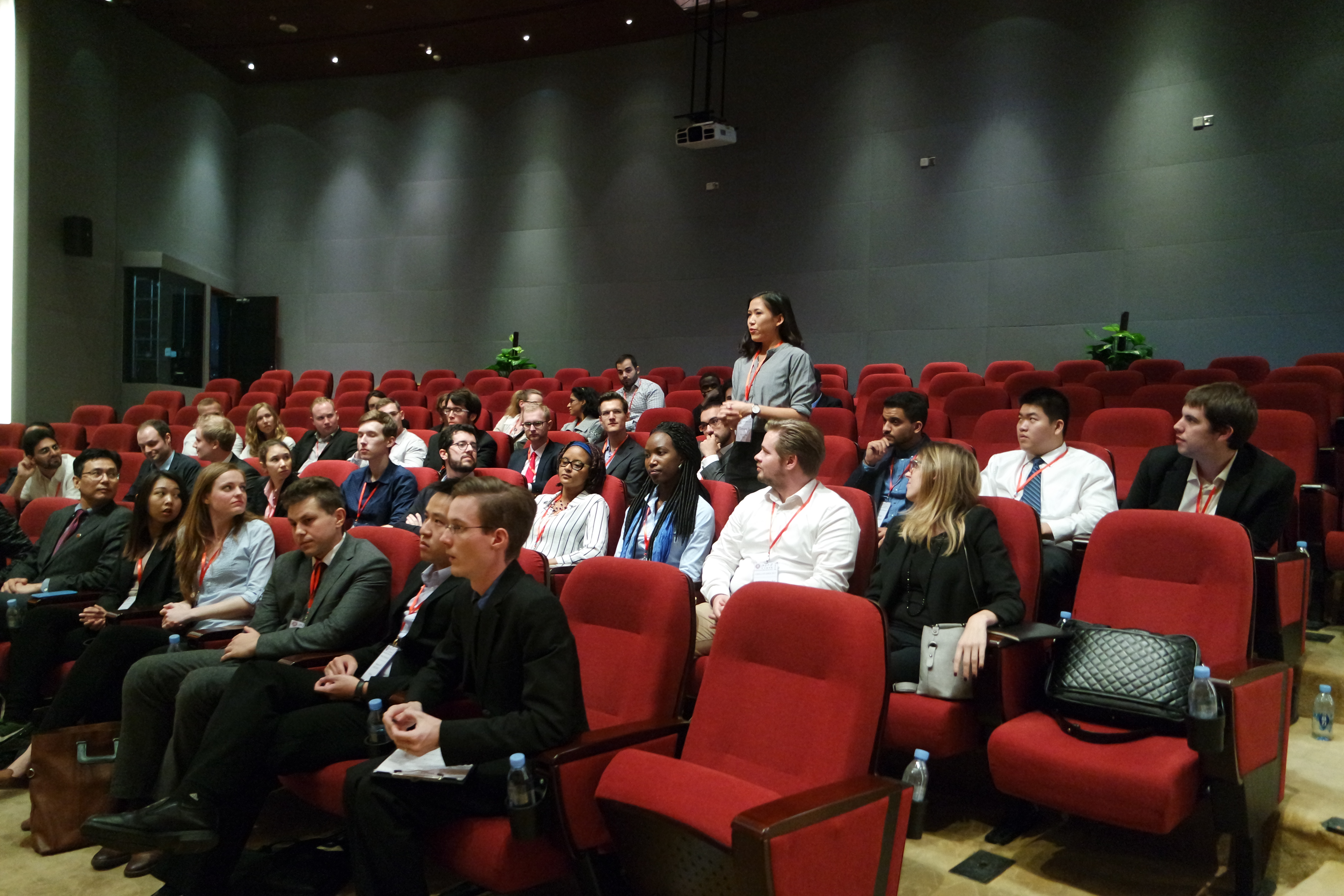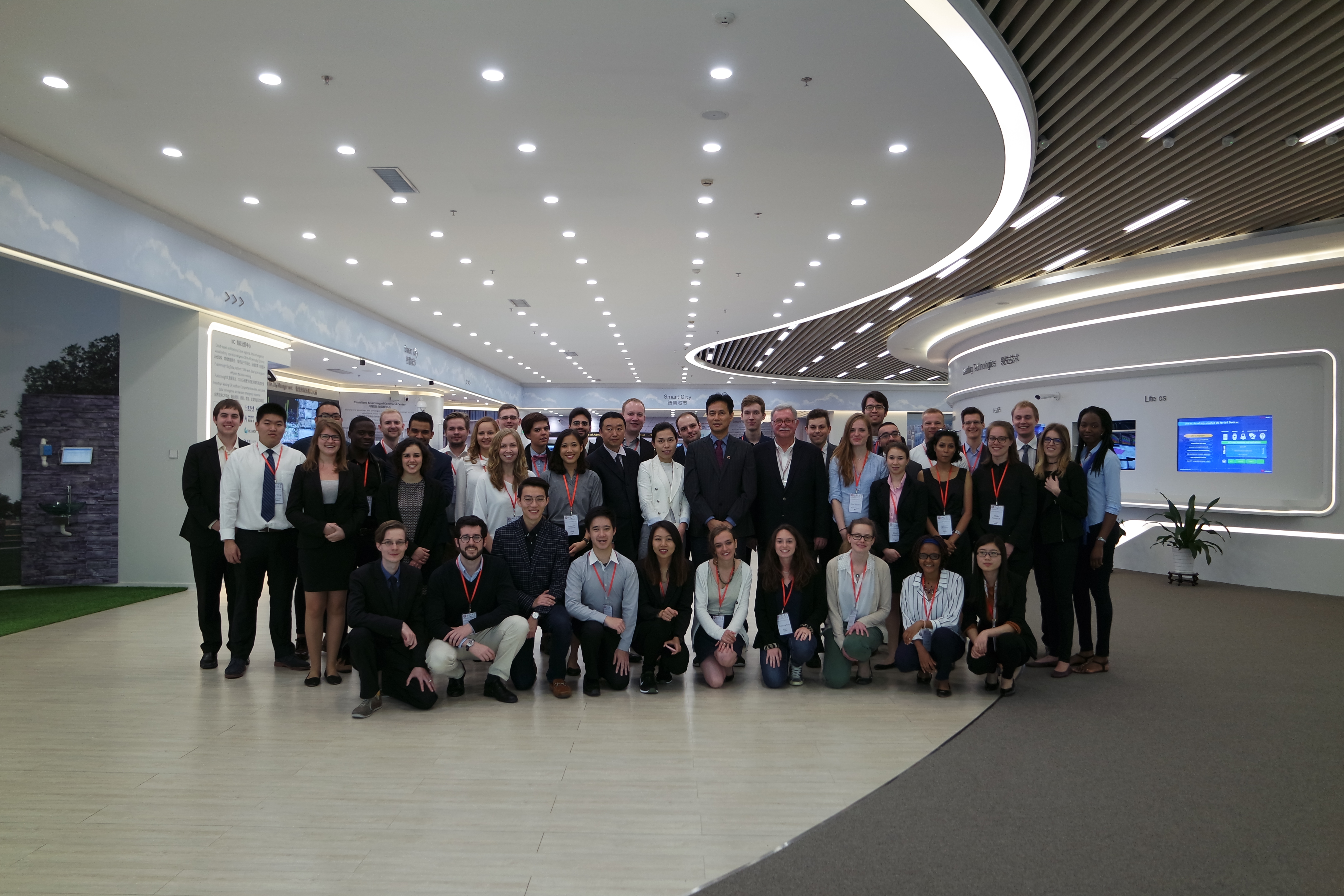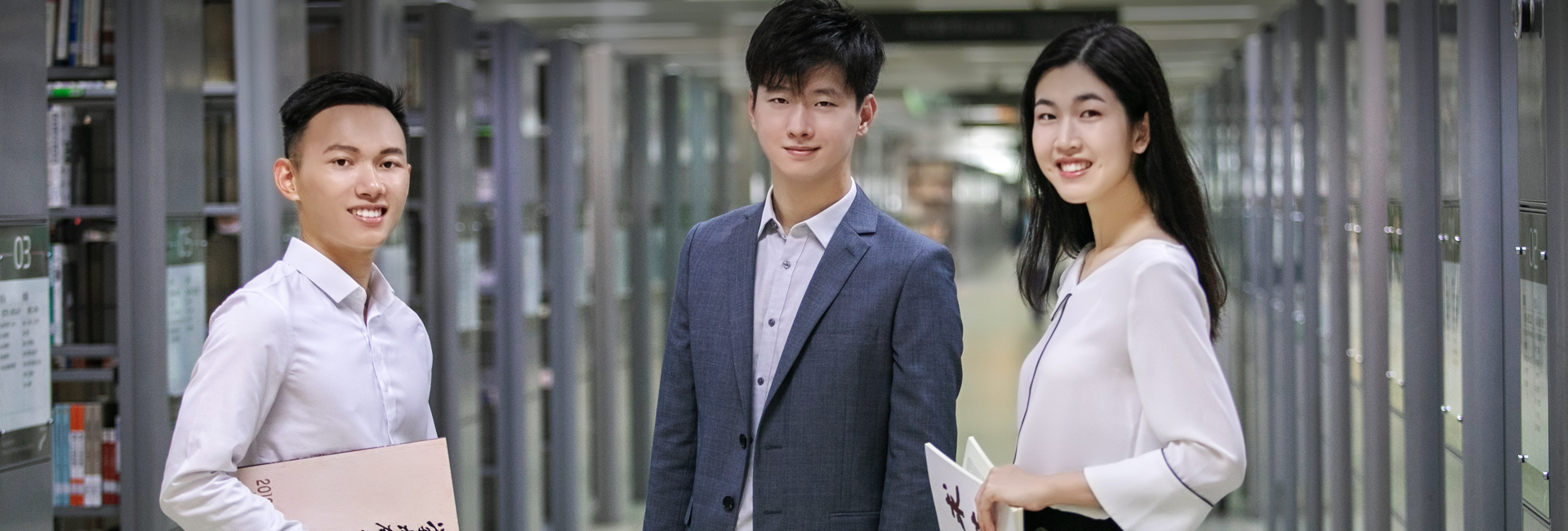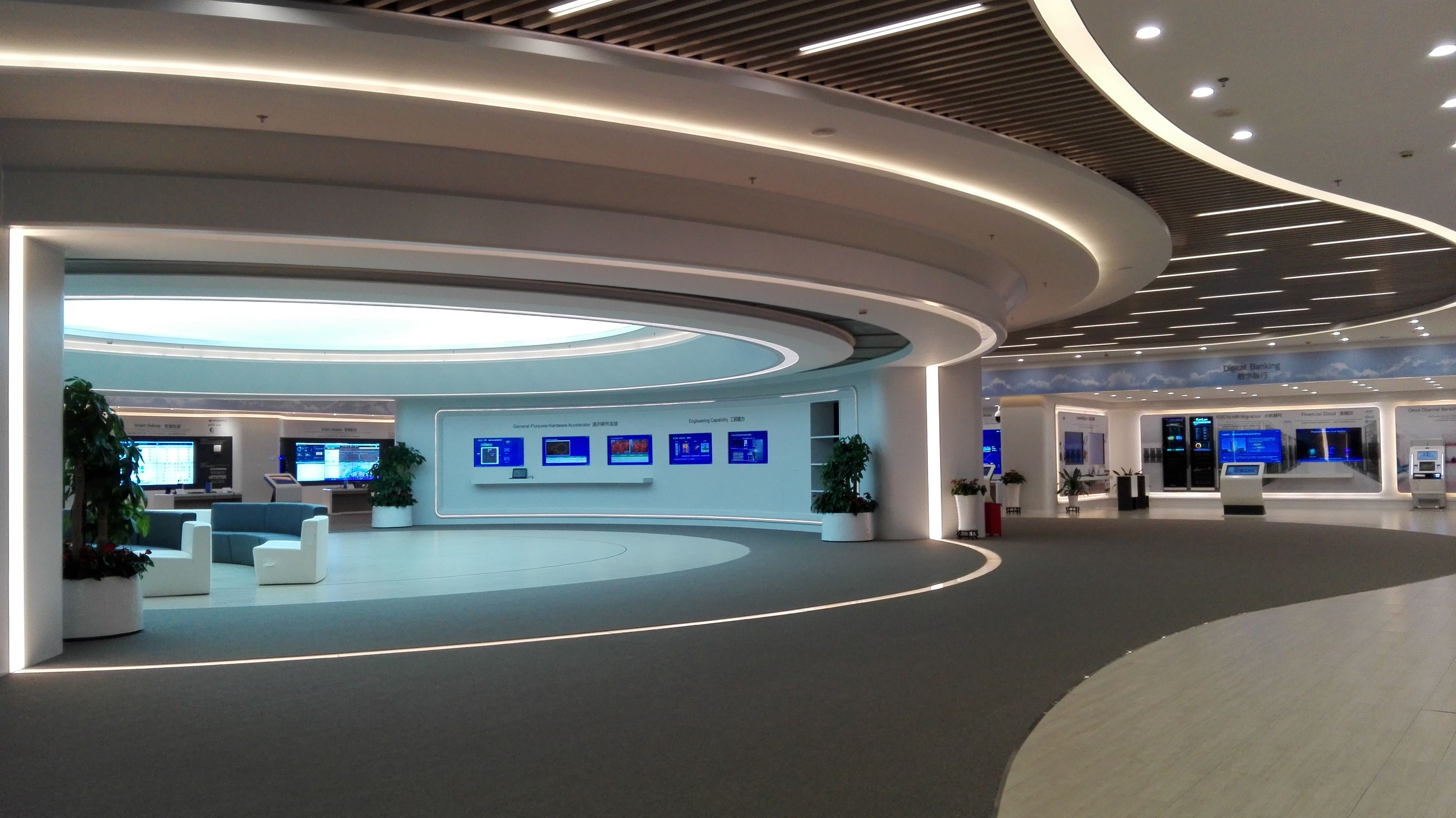On Wednesday, March 22, International students from China Studies class, led by Professor Huang and Alan Aicken, vice president of Huawei, had the great opportunity to visit Huawei headquarters in Shenzhen. According to Huawei Consumer Business Group, its sales revenue was CNY 178 billion in 2016, with an increase of 32% growth rate.
Students presented Alan Aicken with a piece of Chinese calligraphy work as a token of appreciation.
The visit started with a guided tour of the Huawei showroom in the main building,where students learned about the products and services Huawei provides around the world. Founded in 1987, Huawei
was focused on manufacturing phone switches
, but has since expanded its business to telecommunications networks, operational and consulting services, and equipment for enterprises worldwide. Today, it has become the top three cellphone company worldwide, forged partnerships in 170 countries and built 34 innovation centers around the world. “The joint innovation centers really changed the perceptions of Huawei from being a follower to being a leader,” a senior executive at Ericsson said.
The first floor of the Huawei showroom, where products and services are showcased
During the tour, students were also presented with some new projects the company is developing. One of the projects is called “Smart city” that aims to create a safer digital city trough security system development , and more environmentally friendly technology on recycling and energy efficiency. The second important project is Huawei Cloud Computing Solutions, which is designed to provide high-availability, secure IT services to life.
 Tamara Ta, a full-time student from Switzerland, asks a question to Alan Aicken
Tamara Ta, a full-time student from Switzerland, asks a question to Alan Aicken
Alan Aicken, vice president and chief Sustainability Officer of Global Supplier Sustainability at Huawei, gave a lecture about Huawei's successful approach in managing its supply chain and its commitment on environmental protection. According to him, Huawei holds that “green management” is the key to a successful green business strategy. As for questions like “Why is Huawei so successful? What make it different from other companies?” , he responded that in addition to its core value of persistence, self-reflection, and dedication, Haiwei annually invests
10% to 15% of its revenues in R&D to maintain competitive.
The company's slogan “Connect the unconnected” reveals Haiwei's ultimate purpose, Aicken added. “Connect the unconnected” was put forward by Ren Zhengfei, the founder of Haiwei, who believes the connections between people around the world can help reduce the gap between the rich and the poor, to ensure security and to promote environmental friendly products.
 The students gather together in the showroom before leaving Huawei Headquarters
The students gather together in the showroom before leaving Huawei Headquarters
"Huawei is one of the top companies in sustainable supply chain, and I am really surprised about its embedded work culture from the top to the bottom," commented German student Maike Nimmrich. Alexandre Soares , a student from Portugal, remarked, "Huawei is much more than a cellphone company, and I found that the majority of the profit comes from sectors such as data and cloud computing”. German student Benedict Bevec was impressed about the huge impact Huawei has posed on communication industries and how it uses their leverages to improve the work conditions of their suppliers.
By Eleonora Barbieri
Edited by Annie Jin












